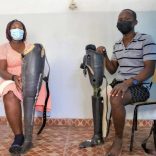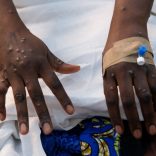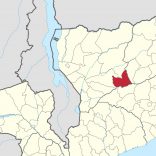Mozambique: Japan donation to finance education, health projects
UNICEF needs over 70 million dollars for Mozambique

in file CoM
The United Nations Children’s Fund (UNICEF) on Monday revealed that it has only received 25 million US dollars in donations to provide life-saving and life-sustaining services for children and their caregivers in Mozambique.
In June, UNICEF revised its annual Humanitarian Action for Children appeal for Mozambique to 96.5 million US dollars due to escalating needs, particularly in the northern province of Cabo Delgado.
However, so far it has only received a quarter of this, having received funds from the governments of Canada, Japan, Norway, Sweden, Italy, the United Kingdom, and the United States. It has also received funds from the European Civil Protection and Humanitarian Aid Operations, Education Cannot Wait, the Global Alliance for Vaccines and Immunisation, the Japan National Committee for UNICEF, and the United Nation’s Central Emergency Response Fund. When taking into account funds carried over from previous years the funding gap stands at 60 per cent.
The areas most neglected by UNICEF’s funders are its Education programme. which has a funding gap of 85 per cent, and its Child Protection programme which still needs to receive 65 per cent of its budget. Its Health programme has a 63 per cent funding gap.
UNICEF highlights the crisis in parts of the northern province of Cabo Delgado, where 862,990 people have been displaced due to violence by islamist terrorists. It calculates that 48.2 per cent of these are children. 11 per cent of the displaced people are now based in resettlement sites, six per cent in temporary accommodation, and 82.7 per cent are living with host families.
Despite the crisis, there are signs of improvement. UNICEF notes that the situation continues to be fluid and unclear, with the Mozambican security forces, along with their allies from SADC (Southern African Development Community) and Rwanda, continuing to gain control of areas previously occupied by terrorists.
Thus, UNICEF reports that residents are returning to Palma town (which had been occupied by the terrorists for just over a week from 24 March). The market in the town is now operating with food prices falling. UNICEF adds that the International Organisation for Migration (IOM) saw a 66 per cent reduction of people on the move in Cabo Delgado by the end of August.
Parts of Cabo Delgado have been under attack from islamist terrorists since October 2017, forcing people from their homes and destroying livelihoods.












Leave a Reply
Be the First to Comment!
You must be logged in to post a comment.
You must be logged in to post a comment.